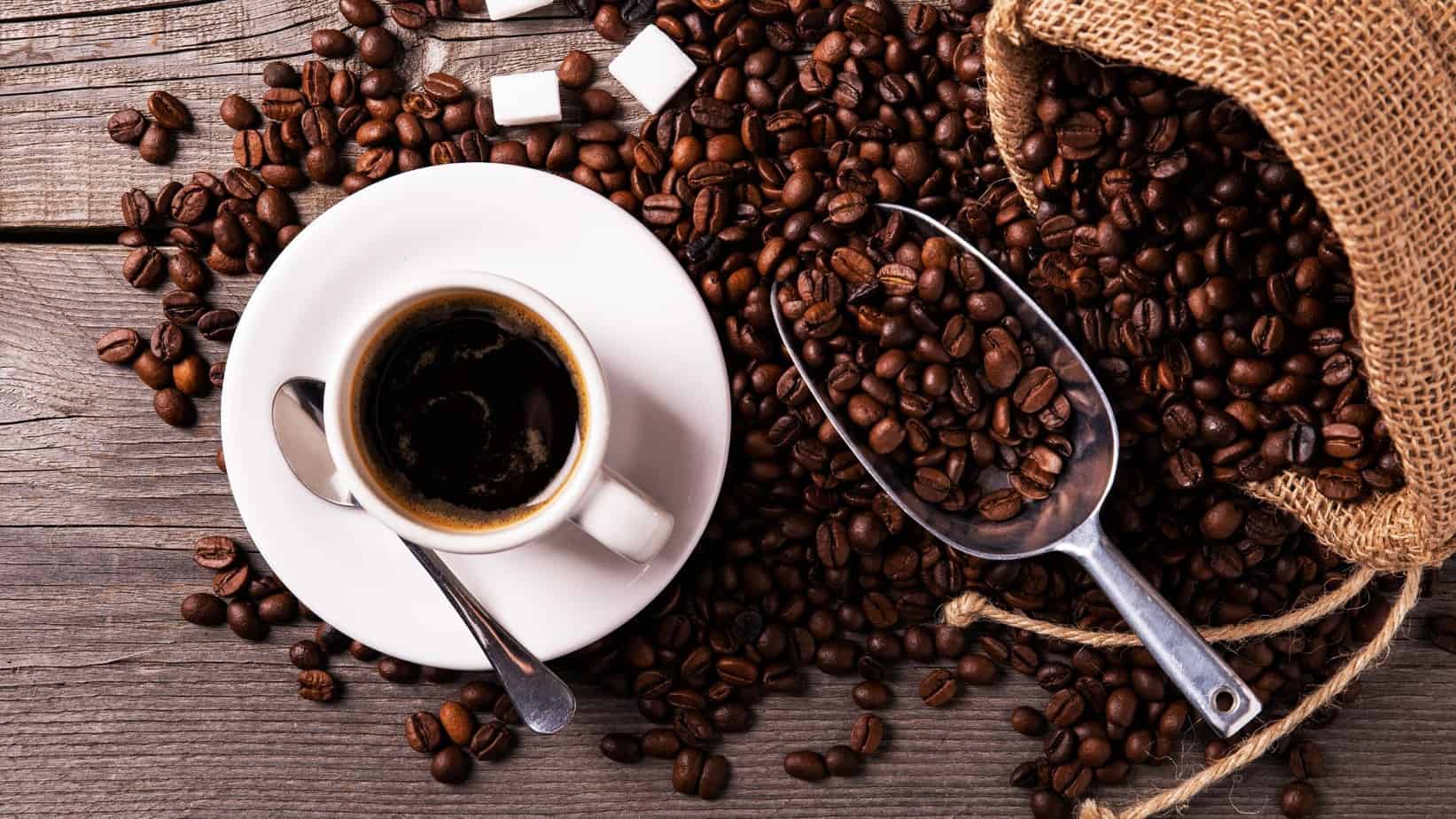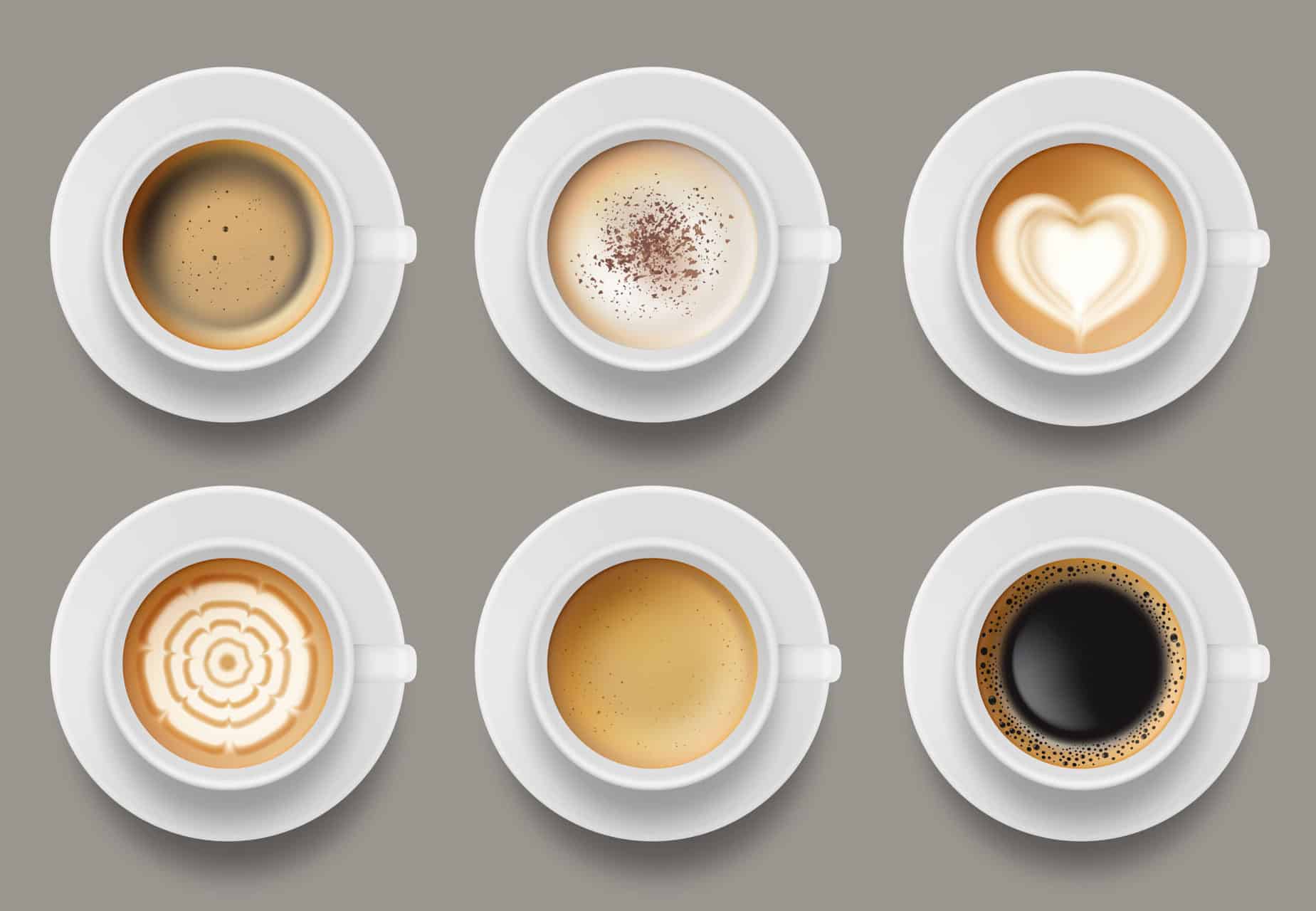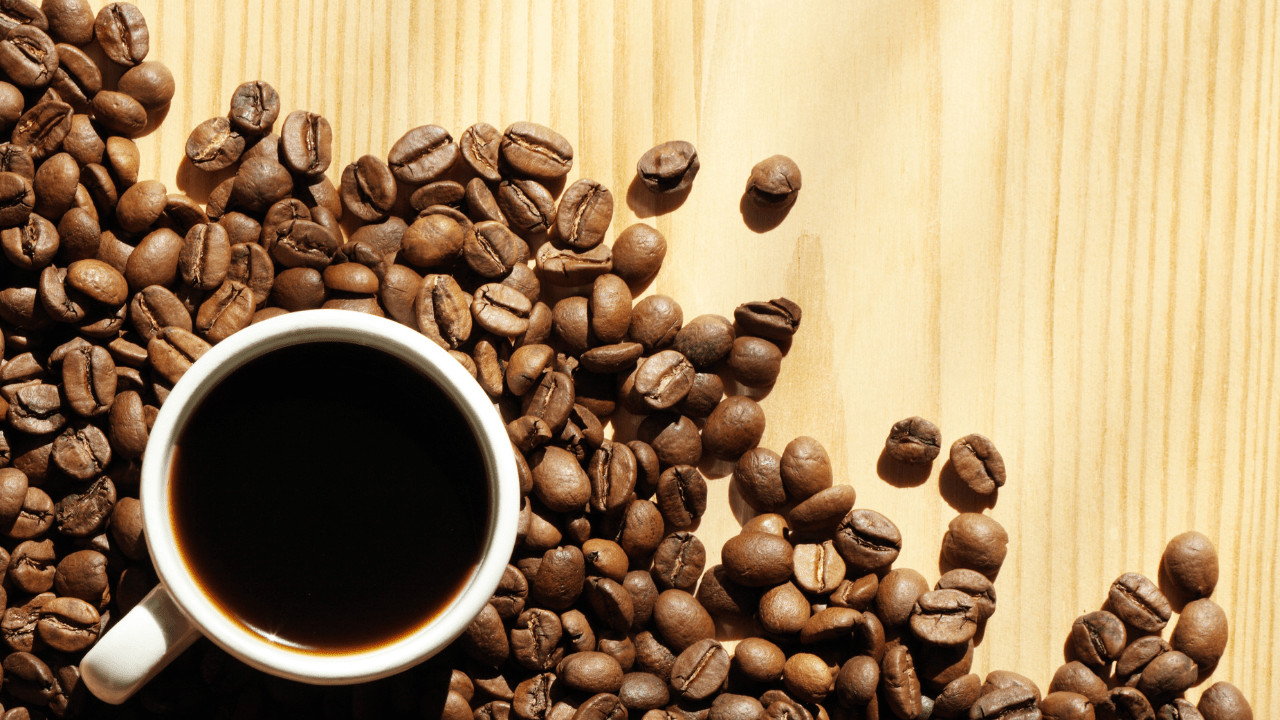Well, a new diet has emerged in the world of fad diets—the Coffee Lover’s Diet, created by Dr. Bob Arnot. For coffee lovers, this could be the perfect diet to try but does it really work? How does this help you lose weight? Is this effective or recommended?
There are several health benefits of coffee you could get if you are a coffee lover. It can provide additional antioxidant benefits, along with a boost of energy from caffeine. It can also help lower the risk of several diseases. However, excessive caffeine intake can lead to undesirable side effects.
The Coffee Diet works mainly because you limit caloric intake. There is limited research as to how excessive coffee intake affects weight loss, but the risks and potential side effects could do more harm than good, especially in the long run.
Read on to learn more about this weight loss plan and why it’s not a good idea for people to follow this diet.
The Coffee Lover’s Diet by Dr. Bob Arnot

The Coffee Lover’s Diet is a book published by Dr. Bob Arnot in 2017. The book claims that coffee can help improve mental clarity, fend off disease (like diabetes and Parkinson’s disease), promote weight loss, and improve overall health. Multiple articles claim that this diet can help you lose up to 50 pounds in 50 days while improving overall health and increasing energy.
The coffee diet focuses on a few major things:
1. Drinking a minimum of three cups of black coffee per day.
The diet states that lighter roasted coffee should be the drink of choice. It should be preferably grown in a higher altitude location like Columbia, Kenya, Ethiopia, or Brazil, as lighter roasts are higher in polyphenol content. Polyphenols are the antioxidants in coffee that are linked to health benefits. Polyphenols can also be found in many foods, including potatoes, capers, and soy products.
2. Replacing one meal with a high fiber smoothie and consuming high fiber, low carbohydrate lean protein meals for the remaining two.
The coffee diet created by Dr. Bob Arnot does focus on eating high-quality, whole foods, lots of fiber, and lean proteins. This is a very healthy, nutritious way to eat. However, the amount of food is likely insufficient to prevent feelings of hunger throughout the day for most people, as the calorie intake is less than most are used to eating.
Thast said the average daily meal plan for the coffee diet is about 1500 calories. The daily breakdown goes like this: wake up and drink one cup of black coffee (no cream or sugar). You can drink as much coffee as you want throughout the rest of the day, as long as you drink a minimum of three cups. It doesn’t have to be caffeinated and can be hot or iced.
Are There Real Benefits to the Dr. Arnot’s Coffee Diet?
There are benefits with the most frequently cited being weight loss. Additionally there are some potential health benefits of coffee, like the ability to lower the risk of type 2 diabetes, Parkinson’s disease, depression, and Alzheimer’s.
Since the diet calls for black coffee nutritionally you can expect:
- A Low calorie bevarge (~ 2 calories)
- 11% RDI of Vitamin B2
- 6% RDI of Vitamin B5
- 2% RDI of Vitamin B3
- 3% RDI of Manganese and Potassium
However, all those can easily be gotten from low calorie food as well.
Ultimately, the reason this diet might result in weightloss is most likely because calories are restricted, and not because coffee is a magic weight loss remedy. Additionally, the diet also calls for cutting out all processed foods which means no fast food, soda, frozen or packaged meals, and alcohol. That is highly effective weight loss strategy especially when these unhealthy options are replaced with altenatives that are nutritious.
If you reduce your calories and swap processed meals for fruits and vegetables you will most likley see similar results even without the coffee.
The Link Between Coffee And Weight Loss

There is limited research on whether or not drinking coffee can promote weight loss.
In health markets today there is a common weight loss supplement called Green Coffee Extract (GCE). If you are wondering what that is exactly, it is precisely what it sounds like; extract from green, or unroasted coffee beans.
It is sold as weight loss aid because of its ability to influence blood sugar levels and limit the production and storage of triglycerides by the liver. From a scientific perspective we could find only one systematic review that cites a total of three studies that supported GCE for weight loss. However, because the research is so limited, this does lend support to this diet.
It’s important to note that the although the extracts found in green coffee are present in roasted coffee they are in lower amounts. Therefore, using drinking black coffee as opposed to GCE for weight loss is likely not going to yield the same results. The Coffee Lover’s Diet most likely works because you limit caloric intake and not because of the coffee.
There is limited research showing that drinking coffee before eating may reduce how much we consume during a given meal, consequently leading to weight loss. But, this research is mixed as there are many other research concluding that opposite.

There are some diets, like the Ketogenic diet, that includes a “bulletproof coffee.” This is a coffee drink made with butter, coconut oil, or other MCT fats. This coffee is high in fat and calories but low in carbohydrates. The theroy here is that the fats in the beverage can help promote feelings of satiety, which may lead to eating less. Again in this instance, the coffee is just the beverage suitable to
But,Why is The Coffee Diet A Bad Idea?
A diet that consistent of drinking more cups of coffee than you would otherwise all for the sake of weight loss is not a good idea for the following reason:
1. Undesirable caffeine side effects
Coffee contains a rough average of about 100 milligrams of caffeine per cup. The recommended and safe amount of coffee intake per day is about 400 mg or 4 cups of coffee.
Yes, caffeine stimulates the nervous system and releases epinephrine (adrenaline) which gives you the feeling of being energized. But caffeine can also have undesirable side effects like increased anxiety, heart palpitations, or trouble breathing. The coffee diet encourages a minimum of three cups of black coffee per day with no cap on how much coffee to consume. This is not a good presedent to follow.
Also, what if you don’t like to drink coffee? One of the “success stories” from this diet stated that she did not drink coffee before the diet, and now she’s hooked. This could be perceived as unsuccessful, as the diet led to a new addiction to coffee.
2. Dehydration
Coffee also works as a diuretic, meaning that excessive intake could lead to dehydration. For each cup of coffee consumed, it’s a good idea to drink the same amount of water. The diuretic effect could have you running to the bathroom, especially if consuming three or more cups!
3. Difficulty Sleeping
Caffeine has a half-life of five hours, so five hours after drinking one cup, half of the amount of caffeine is still circulating through your body. This means that caffeine overload could lead to difficulty sleeping if you consume multiple cups of coffee throughout the day. If you have trouble sleeping and need to drink more caffeine to get through the day, it can lead to a cycle of overconsumption.
4. Long-term Sustainability
Once stopped, people who have undergone low-calorie diets often gain back the weight they drastically lost during this process. According to this study, 80% of people will gain weight after the first month of being off the diet. More than that, only 1% of people can actually retain weight in the long term. Whatever diet changes made need to be ones you can do for the long term.
To lose weight and keep it off, slow, consistent weight loss is key. Rather than trying to lose 50 pounds in 50 days, 1 to 2 pounds per week is a much safer and more realistic goal. Increase your protein and fiber intake and decrease sugar intake; this method can help reduce weight little by little.
Final Thoughts

Although coffee has its fair share of health benefits, increasing your coffee intake to get these benefits is not a very smart or good idea. The antioxidants in coffee are also found in many foods, so eating a wide variety of food can intake the same nutrients. The health benefits of eating minimally processed foods include improving heart health, lowing blood sugar, lowering inflammation, improving the immune system, and can help you lose weight.
Excessive caffeine consumption is not safe, so if you want to increase your coffee intake because you like the taste, incorporate a decaffeinated version. Since the diet deals more on low-calorie intake, it’s better to look up other diets that cover this or talk to your Dietician instead. This way, you’ll be sure of the effects and that it’s appropriate for you.
Overall, excessive coffee consumption could not be good for your health. Calorie restriction is also not a smart way to lose weight. It might work in the short term, but it could lead to weight gain in the long term when resuming a more liberalized diet.
Weight loss with coffee might sound too good to be true because it probably is. This is just another fad diet that should be avoided.







